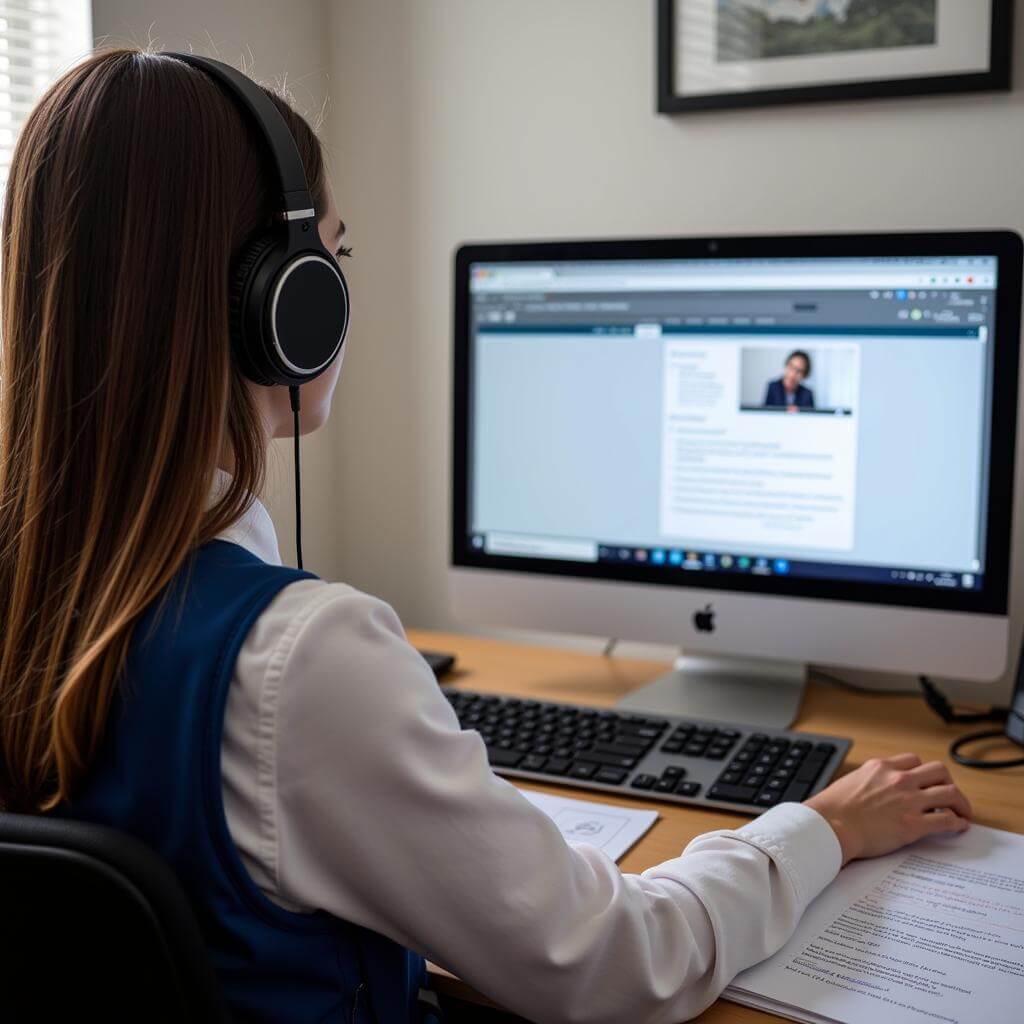Understanding the Importance of Listening Accuracy in IELTS
Listening accuracy is a crucial skill for success in the IELTS exam. It involves the ability to understand and interpret spoken English correctly, which is essential for achieving a high score in the Listening section. Building this skill gradually allows test-takers to develop a strong foundation and improve their performance over time.

Key Components of Listening Accuracy
1. Sound Recognition
Recognizing individual sounds and phonemes is the first step in building listening accuracy. This includes distinguishing between similar sounds, such as ‘ship’ and ‘sheep’ or ‘bet’ and ‘bat’.
2. Word Identification
Being able to identify words correctly within a stream of speech is crucial. This involves recognizing word boundaries and understanding how words change in connected speech.
3. Comprehension of Context
Understanding the context in which words and phrases are used is essential for accurate interpretation of the spoken message.
4. Attention to Detail
Paying close attention to specific details, such as numbers, dates, and proper nouns, is critical in the IELTS Listening test.
5. Inference Skills
Developing the ability to infer meaning from context, tone, and other audio cues is an advanced listening skill that contributes to overall accuracy.
Strategies for Gradually Building Listening Accuracy
1. Start with Simplified Content
Begin with simplified English content, such as news broadcasts for English learners or podcasts designed for intermediate levels. Gradually increase the complexity as your skills improve.
2. Use Transcripts
Listen to audio while reading along with transcripts. This helps you connect written and spoken forms of words and phrases.
Examples:
- BBC Learning English
- TED Talks (with transcripts)
- Podcasts with accompanying scripts
3. Practice Active Listening
Engage in active listening by predicting what might come next, summarizing what you’ve heard, and questioning the content.
4. Focus on Specific Accent Exposure
Expose yourself to various English accents, including British, American, Australian, and other regional variations commonly found in IELTS.
5. Utilize Shadowing Technique
Practice shadowing by repeating what you hear immediately after the speaker. This improves your ability to process speech in real-time.
Applying Listening Accuracy Skills to IELTS Test Scenarios
1. Multiple Choice Questions
Focus on key words in the questions and options. Listen for synonyms or paraphrases of these words in the audio.
Example:
Question: What is the speaker’s main concern about the project?
A) Cost
B) Timeframe
C) Quality
Audio: “While the budget and end result are important, I’m most worried about whether we can complete this on schedule.”
2. Form Completion
Practice listening for specific information like names, numbers, and dates. Pay attention to spelling when required.
Example:
Fill in the blank: The event will take place on __.
Audio: “Please note that the conference has been rescheduled to the twenty-third of July.”
3. Map Labeling
Familiarize yourself with directional language and spatial relationships. Practice visualizing descriptions as you listen.
4. Matching Information
Develop the skill of connecting related pieces of information across the audio passage.
Example:
Match the person to their role:
- Dr. Smith
- Professor Jones
- Ms. Brown
A) Project Manager
B) Lead Researcher
C) Financial Advisor
5. Short Answer Questions
Improve your ability to extract key information quickly and concisely.
Example:
Question: What is the minimum age requirement for the competition?
Audio: “Participants must be at least 18 years old to enter the contest.”
Common Mistakes to Avoid
- Focusing too much on unfamiliar words and missing subsequent information
- Failing to read questions and predict answers before listening
- Writing answers while listening, causing missed information
- Misinterpreting similar-sounding words (e.g., ‘four’ vs. ‘for’)
- Ignoring context clues that could aid understanding
Effective Practice Techniques
1. Daily Listening Routine
Establish a daily routine of 20-30 minutes dedicated to listening practice. Consistency is key to gradual improvement.
2. Use IELTS-specific Materials
Incorporate official IELTS practice tests and materials into your study plan to familiarize yourself with the test format and question types.
3. Diversify Listening Sources
Expose yourself to a wide range of topics and speakers to improve your ability to understand different accents and subject matters.
4. Record and Analyze Mistakes
Keep a log of your listening errors and analyze patterns to identify areas for improvement.
5. Peer Practice Sessions
Engage in listening exercises with study partners, taking turns to create and solve listening tasks based on IELTS formats.
Conclusion
Building listening accuracy gradually is a key strategy for IELTS success. By focusing on sound recognition, word identification, comprehension, and attention to detail, test-takers can significantly improve their performance. Remember to practice regularly, expose yourself to diverse content, and apply specific techniques to IELTS question types. With dedication and the right approach, you can enhance your listening skills and achieve your desired IELTS score.
We encourage you to share your own listening practice strategies or challenges in the comments below. For more IELTS preparation tips and resources, explore our other articles on IELTS.NET.